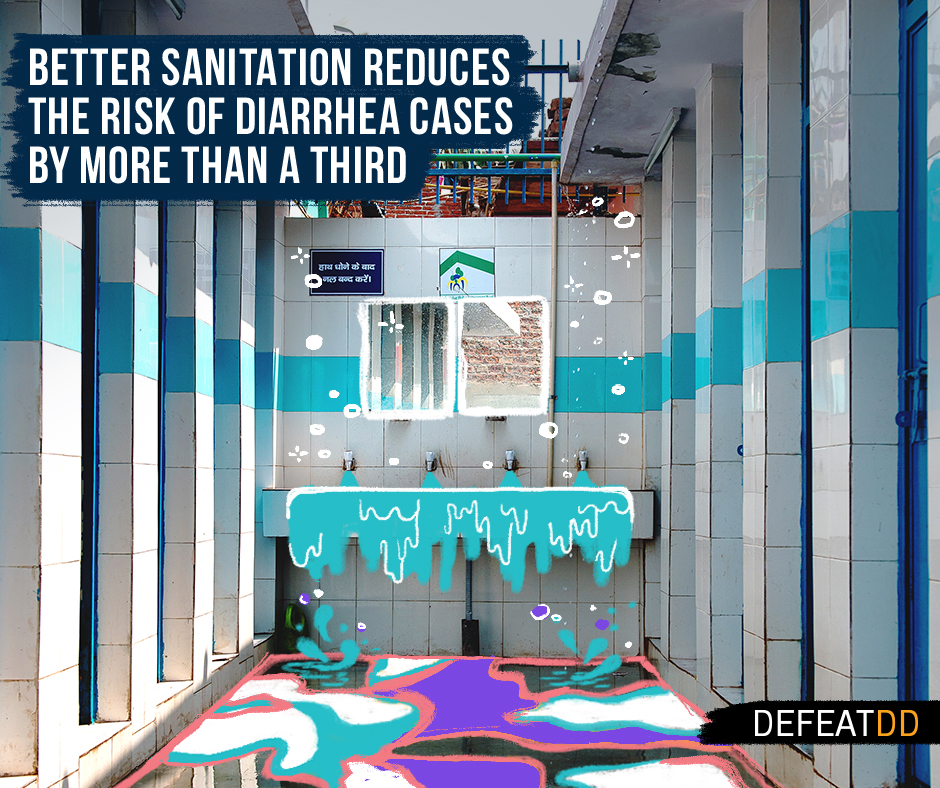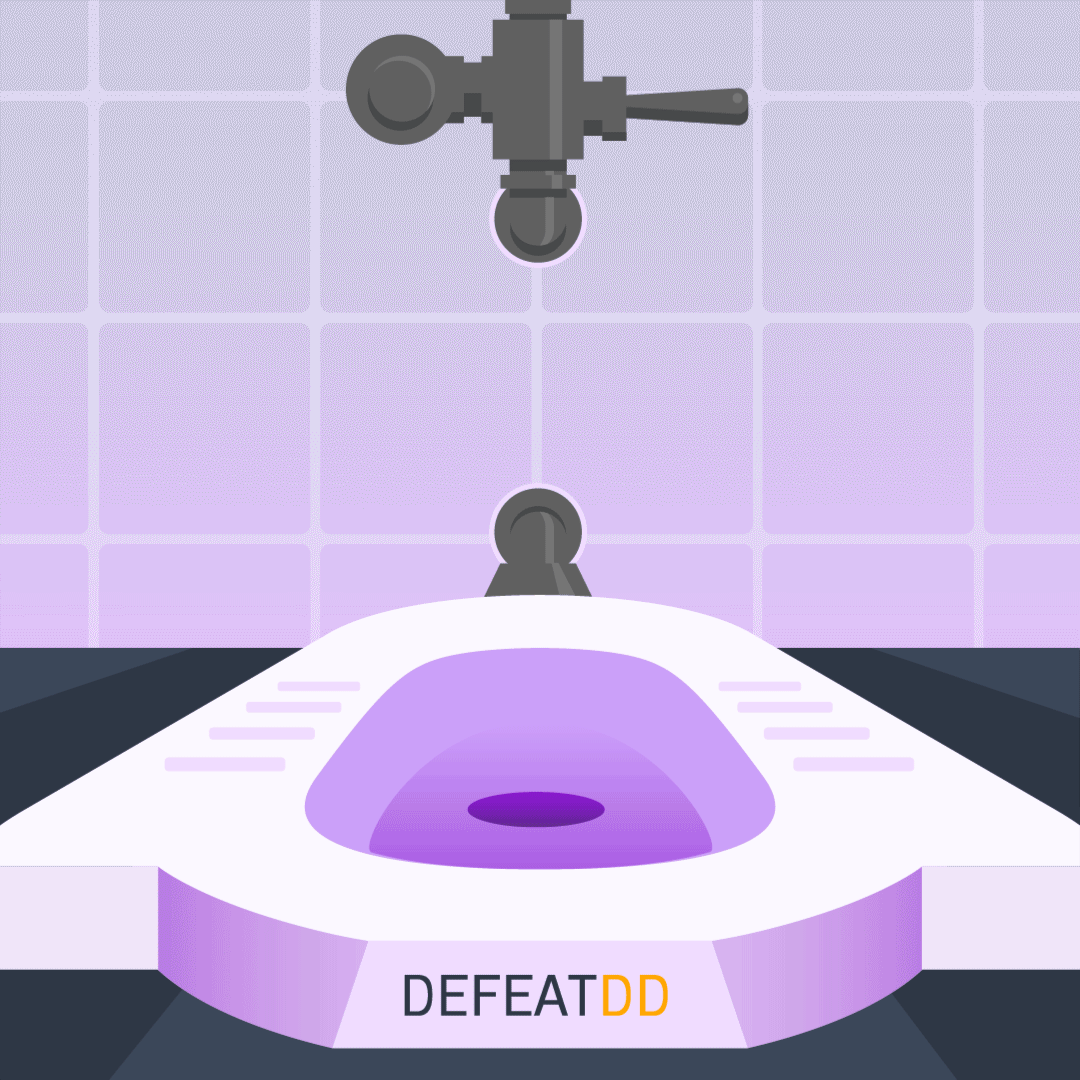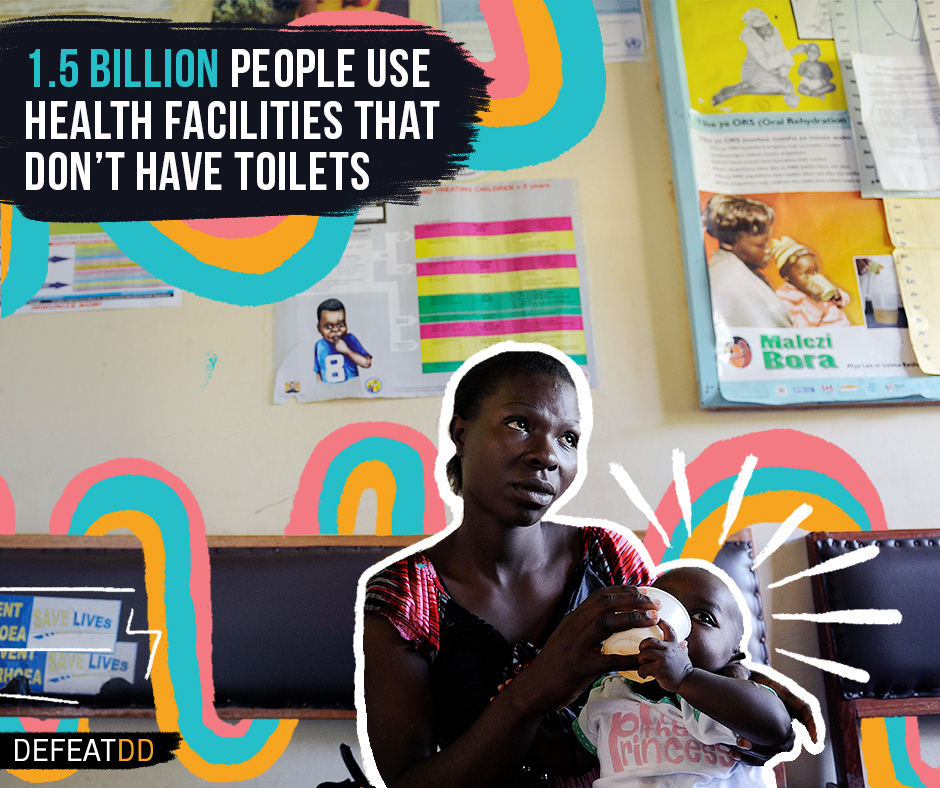
A revoLOOtion to fight trillions of germs

Poop is disgusting. That’s a universal fact that we can all appreciate. But if you have ever rolled your eyes at the insistent refrain from health experts to wash your hands, realize their persistence is fueled by knowledge that can’t be un-known. Like the fact that there are a trillion germs in just one gram of poop. (Sorry, but we had to tell you!)
 Open defecation is a major contributor to diarrhea and many other illness. Sanitation is very much a health issue.
Open defecation is a major contributor to diarrhea and many other illness. Sanitation is very much a health issue.
But even if you didn’t know the gnarly details, most of us have a basic awareness that contact with the germs in fecal matter, an army many trillions strong, makes us sick. Toilets are among the greatest public health tools ever conceptualized because, when built properly, they reduce our exposure to the pathogenic parade that can cause us harm. And while the link between fecal germs and diarrhea may feel like old news to some, researchers are still uncovering new insights about the nature of that harm, like the long-term consequences of enteric infections that can stunt the trajectory of a child’s life. These stakes are high, even when children escape the immediate threat of death by dehydration.
 There are fewer deaths from diarrhea today, but children are still getting sick. This perpetuates a vicious cycle of diarrhea and malnutrition. The body of basic knowledge about the links between health and sanitation, as well as the new research illuminating a devastatingly more severe cost of inaction, makes a longstanding global reality all the more puzzling: the tendency of the health and sanitation sectors to work in parallel to each other.
There are fewer deaths from diarrhea today, but children are still getting sick. This perpetuates a vicious cycle of diarrhea and malnutrition. The body of basic knowledge about the links between health and sanitation, as well as the new research illuminating a devastatingly more severe cost of inaction, makes a longstanding global reality all the more puzzling: the tendency of the health and sanitation sectors to work in parallel to each other.
The challenges to integration are legitimate and messy, from siloed donor funding streams to incompatible monitoring and evaluation mechanisms. But the aspirations of the Political Declaration on Universal Health Coverage (UHC), adopted by global leaders at the United Nations General Assembly in September, depend upon addressing preventable disease outbreaks like cholera and typhoid, which isn’t possible as long as sanitation continues to be poor. Safe treatment, a pillar of UHC, means all healthcare facilities need places for staff and for patients to use the toilet and wash their hands. The WASH in healthcare facilities resolution is one practical example of the kind of coordination that can bring us closer to global health equity.
 No one should risk infection due to lack of toilets where they give birth and seek treatment. 15% of patients develop an infection during a hospital stay, with the proportion much greater in low-income countries.
No one should risk infection due to lack of toilets where they give birth and seek treatment. 15% of patients develop an infection during a hospital stay, with the proportion much greater in low-income countries.
These are just a few of the reasons why for World Toilet Day we raise a banner for a universal health revo-LOO-tion. Head on over to our campaign page for a menu of ways to take action for the cause.


